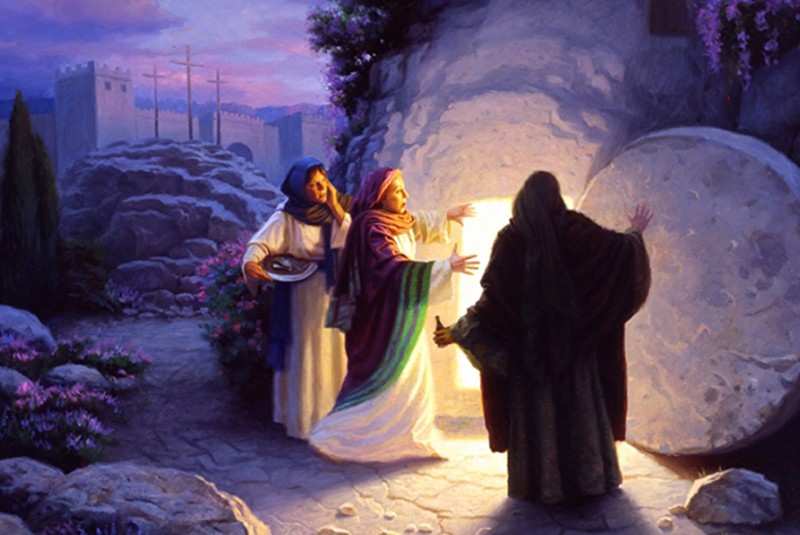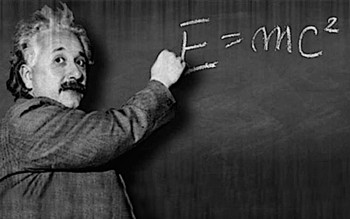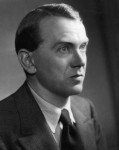The Holy Bible Says that Jesus Did Not Die
In my book Os mortos não morrem [The Dead Do Not Die], I affirm that if God raised Jesus from the dead, it means that, ipso facto, there is life after “death.” Let us read carefully what is written in the Gospel according to John 13:1: “It was just before the Passover Festival. Jesus knew that the hour had come for Him to leave this world and go to the Father. Having loved His own who were in the world, He loved them to the end.”

Have you noticed that the Gospel does not say that Jesus would die, but “leave this world and go to the Father”? The Christ of God defeated death, and He empowers us to overcome any apparently insurmountable difficulty. It is the undeniable “Message of the Empty Tomb”—title of the circular letter I wrote on the very early Monday morning of August 25, 1997, in Rio de Janeiro (Brazil). In it, I was very moved when I explained that: After Jesus’ Resurrection, death is no longer the gloomy entrance to Nothingness. It is actually the splendorous revelation that happiness in God, the Provider of all needs, is eternal, as perennial will be the achievements of Good on Earth and in Heaven. Let us respect life, and it will bless us. When the Heavenly Friend revealed the Empty Tomb, the impossible ceased, because He had raised, as He promised, from death to eternity. And with Him, so have we. Thank God!

Nikola Tesla

Albert Einstein
Now, when Paul said “see decay,” “did not see decay,” he was talking about the human body.1 When we die, our body decays and smells bad. In this process, the worms arise. That did not happen with Christ. He resurrected. Some say that the Divine Master did not have a physical body similar to ours. Others say that is blasphemy. But let us think: there are so many bodily forms that we cannot see with our naked eyes—for example, the microorganisms and those only anticipated by abstract calculation. There is also the wind: nobody sees it, but it is real, and we feel it through its effects, just like electricity and magnetism. Nikola Tesla (1856-1943) carried out quite a number of experiments by exploring their peculiarities, which gave rise to much technology. As for light, we can see it, but it was only after Einstein (1879-1955) that we realized all its properties in the most diverse and never-before-imagined areas of physics. There is still so much that our senses cannot perceive! Are we, earthly beings, the only ones in the Universes? Or must everything in the Universes look like us?
The Spirits of our loved ones are still alive. However, very few individuals have developed the divine gift of seeing the disincarnated beings. How many times Souls come close to us and we draw them away, cruelly fearful from the ridiculous fear of “ghosts.” We should—let us say, for the sake of argument—be afraid of obsessors, evil spirits who wish us bad. But the evil beings will never reach their goal, neither will they get close to us, since we will be illuminated by Good, if we are connected to the Divine Spirits, our Guardian Angels, Blessed Souls, Tutelary Deities. This is the great lesson I emphasize in my book A Missão dos Setenta e o “lobo invisível” [The Mission of the Seventy and the “Invisible Wolf”]2 (2018).
So much from human ignorance must be brought down! Jesus talks about an Eternal Spiritual Kingdom. How would Spirits not exist, then?

Graham Greene
In Apocalipse sem Medo [The Apocalypse Without Fear] (2000), I quote the following thought from acclaimed writer Graham Greene (1904-1991): “The world was not the Universe. Somewhere Christ might not have died.”
Such splendid, multiple, infinite dimension does exist. Jesus, the Good Shepherd, told us about it in His Gospel according to John 14:1-3. This is a comforting revelation to His followers who persevere through the millennia to the end:
“Jesus Comforts His Disciples
1 “Do not let your hearts be troubled. You believe in God; believe also in me.
2 “My Father’s house [the Universe] has many rooms [dimensions]; if that were not so, would I have told you that I am going there to prepare a place for you?
3 “And if I go and prepare a place for you, I will come back and take you to be with me that you also may be where I am.”
Such magnificent place starts in our hearts when connected to God.
______________________
1 The author refers to the passage in the Acts of the Apostles of Jesus 13:29-37, in which the Apostle Paul preaches an extraordinary sermon in the synagogue at Antioch of Pisidia.
2 A Missão dos Setenta e o “lobo invisível” (2018) — The book by Paiva Netto invites us to study the “Mission of the Seventy Disciples of Jesus” (The Gospel according to Luke 10:1-24) verse by verse, in which the action of the “invisible wolf” is denounced—the obsessor that has been dragging individuals, families, societies, governments, and countries to so many tragedies.

The comments do not represent the views of this site and are the sole responsibility of their authors. It denied the inclusion of inappropriate materials that violate the moral, good customs, and/or the rights of others. Learn more at Frequently asked questions.